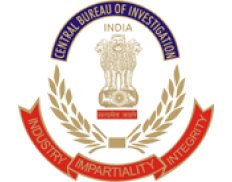
CBI
General
Jobs•0
Shortlists/Awards•0
Pricing strategy•0
Partners/Competitors•0
General
Jobs
Shortlists/Awards
Pricing strategy
Partners/Competitors
Details
Legal residence:India
Types:Consulting Organization
Funding agencies:Other
Sectors:Human Rights, Law
Status:Active
About
-
At an early stage of World War-II, the Government of India realised that vast increase in expenditure for war efforts had provided opportunities to unscrupulous and anti-social persons, both officials and non-officials, for indulging in bribery and corruption at the cost of public and the Government. It was felt that Police and other Law Enforcement Agencies under the State Governments were not in a position to cope with the situation. An executive order was, therefore, passed by the Government of India in 1941, setting up the Special Police Establishment (SPE) under a DIG in the then Department of War with mandate to investigate cases of bribery and corruption in transactions with which War and Supply Department of the Government of India was concerned. At the end of 1942, the activities of the SPE were extended to include cases of corruption on Railways also, presumably because the Railways were vitally concerned with movement and supply of war materials.
-
In 1943, an Ordinance was issued by the Government of India, by which a Special Police Force was constituted and vested with powers for the investigation of certain offences committed in connection with the departments of the Central Government committed anywhere in British India. As a need for a Central Government Agency to investigate cases of bribery and corruption was felt even after the end of the war, the Ordinance issued in 1943, which had lapsed on 30th September, 1946 was replaced by Delhi Special Police Establishment Ordinance of 1946. Subsequently, the same year Delhi Special Police Establishment Act, 1946 was brought into existence.
-
CBI derives power to investigate from the Delhi Special Police Establishment Act, 1946. Section 2 of the Act vests DSPE with jurisdiction to investigate offences in the Union Territories only. However, the jurisdiction can be extended by the Central Government to other areas including Railway areas and States under Section 5(1) of the Act, provided the State Government accords consent under Section 6 of the Act. The executive officers of CBI of the rank of Sub Inspector and above, exercise all powers of a station office in-charge of the police station for the concerned area for the purpose of investigation. As per Section 3 of the Act, Special Police Establishment is authorised to investigate only those cases, which are notified by the Central Government from time to time.
-
After promulgation of the Act, superintendence of SPE was transferred to the Home Department and its functions were enlarged to cover all departments of the Government of India. The jurisdiction of SPE was extended to all the Union territories and the Act provided for its extension to States with the consent of the State Government. The Headquarters of SPE was shifted to Delhi and the organisation was put under the charge of Director, Intelligence Bureau. However, in 1948, a post of Inspector General of Police, SPE was created and the organisation was placed under his charge.
Top partners
Top competitors
Similar Companies
By Sectors and Organization Types
Country:
Colombia
Awards:
1
Jobs:
0
Country:
Spain
Awards:
2
Jobs:
0
Country:
UK
Awards:
0
Jobs:
0
Country:
Ghana
Awards:
0
Jobs:
0






